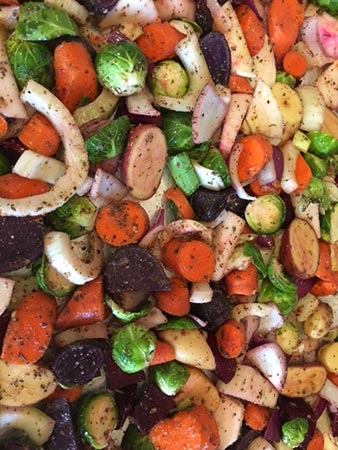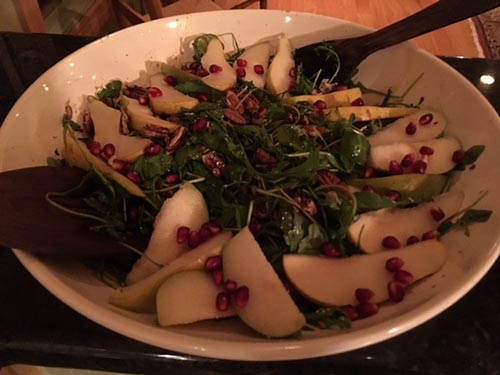By using our website, you agree to the use of cookies as described in our Cookie Policy
Cancer Care

Food matters for cancer
What you eat and how you live your life matters - when it comes to preventing or fighting cancer.
The goal of nutrition during the cancer journey is to strengthen the body-mind-spirit, - to create an environment inhospitable to cancer growth.Think of a garden with strong soil that prevents weed growth.
While the focus of medical treatment is on the cancer- eradicating the tumor-by chemo, immune therapy, radiation or surgery, nutritional therapy is focused on strengthening you-strengthening your body-mind-spirit,enabling your healing capacity, empowering you to make it through treatment and side effects.
Cancer treatments are designed to kill off cancer cells. Your nutrition is designed to enhance treatment and minimize harm to normal cells. Your normal cells need extra nourishment and care during this time.
The hundreds of compounds in your food interact with the molecular machinery in normal and cancer cells, sending healing messages to normal cells and destructive messages to cancer cells. There is strong scientific evidence on the anti-cancer effects of many food compounds - the EGCG in green tea, the curcuminoids in turmeric, the ellagic acid in walnuts and raspberries, to name just a few.
Cancer treatment-is not a time to be overly restrictive when it comes to diet. Do the best that you can.
Cancer is a scary, confusing time. There is so much contradictory and overwhelming information about what to eat and what not to eat. I caution against “fear based nutrition,”- overly alarming warnings - don’t eat this, don’t eat that.I believe that the stress from worrying about food choices can be worse than actually eating the food.
I can help you navigate the overwhelming amount of nutritional information. I can help you simplify, to find the diet that works for you - an eating plan that meets your current needs and makes you strong.
You didn’t get cancer because of the foods you ate or didn’t eat. Cancer is a myriad of complex processes. We don’t know why some seemingly healthy people get cancer while other less healthy people do not get cancer. Genetics, diet, environment all play a role.
But-we do know that what you eat and drink is under your control and that it plays a role in managing cancer and treatment. Every time you eat or drink - is an opportunity to nourish all your 37 trillion cells and to say “No” to cancer cell growth. When you are hydrated and nourished, you are stronger and more grounded; cancer treatments will be more effective, and side effects more manageable.
But you may be experiencing nausea, taste changes and overall dis-interest in food.In this case, you do the best that you can. Focus on some simple, go to foods-cup of soup, toast and peanut butter or avocado, a smoothie. Slowly, you will get better and will be able to eat more.

Nutritional Strategies to Help Prevent or Manage Cancer
No two people are alike and no two cancers are alike. While cancer, cancer treatments and nutritional needs will vary from one individual to another, there are some general strategies that can support nutritional balance and can address the “weak links” that are creating imbalance and may be giving cancer an advantage.
Common weak links include dehydration, nutrient depletion, weak digestion, pre-diabetes or diabetes, being over or under weight, excess stress, poor sleep, low immunity, inflammation, weak resilience. Addressing these weak links and restoring balance and strength are key strategies toward managing a newly diagnosed cancer and preventing a cancer reoccurrence.
I partner with you to create a nutritional plan – personalized for you - that will support your cancer management system and your goals for healthy weight, lean muscle mass, immune system strength, blood sugar balance, digestive strength and overall recovery and resilience.



